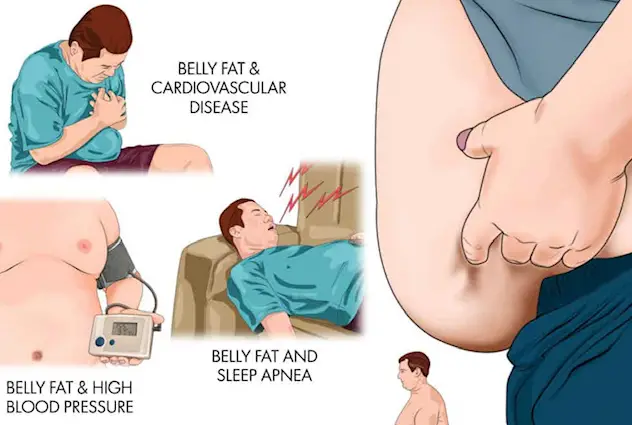Obesity is defined as a medical condition characterized by an excess of fat accumulated to the extent that it has a negative impact on health. The World Health Organization (WHO) today considers obesity to be a chronic progressive disease as a result of multiple genetic and environmental factors. Each of us knows a person who consumes ice cream, cakes and everything that comes to mind in abundance, and yet has no problem with weight. Another extreme is people who gain weight even though they eat very little. Why is that? What causes us to gain weight? The main cause of obesity and overweight is energy imbalance between calories consumed and calories expended.
Globally, there are:
• Increased intake of energy-dense foods rich in fat
• Increased physical inactivity, as a result of the increasingly sedentary nature of many job positions, changing modes of transport and increasing urbanization.

However, each of these factors is influenced by a combination of genes and environment, ie lifestyle. These two factors influence our physiology (such as how quickly we burn calories) as well as our behavior (for example, what food we consume). The influence of these two factors takes effect at the moment of our conception and continues throughout our lives. Genes contribute by affecting appetite, satiety, metabolism, a strong urge to eat certain foods, the distribution of adipose tissue, and the tendency for food to be used as a stress reliever. Genetic factors are the internal force that helps us gain weight, and environmental factors are the external force that further contributes to this problem. This includes all the environmental factors that lead to overeating or too little exercise. Therefore, experts believe that environmental factors are the driving force that explains the dramatic increase in obesity.
The sugar industry with powerful marketing tricks distracted us from carbohydrates and sugars in general and turned us to fat. From childhood we consume food that is high in calories, processed, without nutrients. In foods that are supposedly “no sugar” there is an artificial sweetener, foods that are “cholesterol free” or “low fat” are fortified with sugars, fermented dairy products are with the addition of vegetable fats (trans fats) which are carcinogenic as well as the addition of starch. Foods with high glycemic index such as sweets, white pasta, potatoes, rice, etc. sharply raise blood sugar and stimulate hunger and a strong urge to overeat. On the other hand, our movement is reduced to a minimum and there is increasing evidence that the way we live – how much we sleep, stress levels and other physiological factors – contribute to obesity.
Obesity and overweight are treated with diet and physical activity, and sometimes medication therapy is necessary. Start the day with lukewarm water with lemon in order to alkalize the body. Never, ever skip breakfast, and let it be extensive in order to have energy until the next meal. Never, ever skip breakfast, and let it be bulky in order to have energy until the next meal. Do not snack between meals, and sweets should not be your daily routine. Do not skip dinner. Have at least 30 minutes a day for physical activity, just fast walking or cycling is enough. Spend weekends or free time in the fresh air. Let patience, food and physical activity be your medicine.

